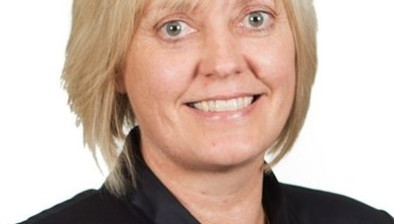StorTera installs ‘world first’ for energy storage in Perth and Kinross
Councillors Richard Watters, Liz Barret and Ken Harvey at the new battery storage system
Perth & Kinross Council (PKC) has become the first place in the world to use spiral-flow battery technology to reduce its carbon footprint.
Designed, developed and manufactured by StorTera, an Edinburgh-based developer of intelligent energy storage solutions, the project aims to develop a prototype smart energy at the Friarton Waste Depot.
As well as reducing the council’s carbon footprint, the new system will help bring down energy costs through smarter energy management while reducing carbon emissions and supporting the move towards low carbon transport and heating.
The smart energy network will help PKC understand the requirements for developing Local Smart Energy Systems that can be built at scale across the council’s estate and has the potential to help tackle fuel poverty.
The network will demonstrate how energy storage combined with intelligent controls can offer the council flexibility in its energy demand as well as enhancing how it generates renewable energy.
This smart energy network has the ability to:
- Fully utilise solar power generated on site by storing excess energy in batteries for use when required or when energy prices are high;
- Generate revenue by providing renewable energy to the electricity network when demand is high;
- Power devices such as smart heaters with excess solar generation in turn supporting the electrification of heat; and
- Transfer clean energy between council sites (peer to peer). For example, transfer solar power generated in a school during summer holidays to another council site.
Councillor Richard Watters, convener of the council’s Climate Change and Sustainability Committee, depute convener Councillor Liz Barrett and Councillor Ken Harvey visited Friarton to see the battery in operation on 31 August.
Councillor Watters said: “This is ground-breaking technology that demonstrates our commitment to tackling the climate emergency.
“Innovation will be key to reducing our carbon footprint and this energy storage system, designed and built in Scotland, is the first of its kind to be used in this way and will help Perth become Europe’s most sustainable small city.”
Councillor Watters added: “The Perth & Kinross Smart Energy Network is key to helping us reach net zero. Creating a smart energy system will help us reduce our carbon footprint and our energy costs.”
Brenda Park, chief operating officer at StorTera, said: “We are extremely proud to have been able to install the world’s first ever smart energy network using our pioneering spiral flow battery technology at the Friarton Recycling Centre.
“We’ve worked closely with Perth and Kinross Council to ensure that our unique system will meet the demands of this site and have high hopes that we will be able to build networks like these at scale across the council area.
“Scotland is producing more and more clean power and it is clear that long duration energy storage will be crucial if we want to meet our net-zero targets.
“Therefore, it is vital that we have smart energy networks like this across Scotland so that when the wind isn’t blowing and the sun isn’t shining energy can be stored and released to the grid.
“The team at StorTera is growing all the time as we continue to revolutionise energy storage in Scotland.”
PKC-SEN was funded by Scottish Enterprise via its Can-Do Innovation Challenge Fund.
Jane Martin, managing director of innovation and investment at Scottish Enterprise, said: “This is an excellent example of how public sector organisations can play a key role in unlocking innovation and wider economic benefits.
“Perth and Kinross Council’s green energy solution in collaboration with StorTera’s world-first battery technology at its recycling centre will lower costs and reduce emissions and Scottish Enterprise is pleased to have helped support this through our Can Do programme.”





















